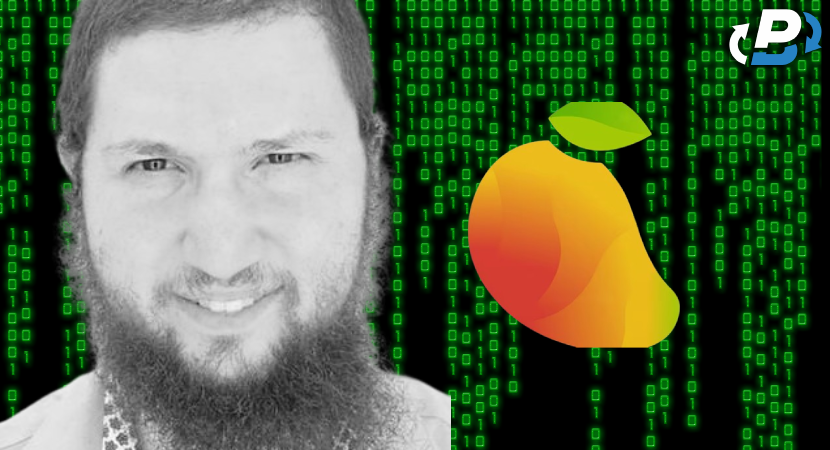When deang in crypto, one has to be careful because of unforeseen circumstances, such as scams and scandals that tamper with the credibility of those platforms. A popular case that has proved this to be true is the Mango Markets Eisenberg case, where a crypto trader named Avram Eisenberg identified weaknesses on the Mango Markets platform and decided to perpetrate one of the largest scams in the industry. In October 2022, Eisenberg devised a scheme to exploit Mango Markets, where he borrowed over $110 million in cryptocurrency from the platform, and as the MNGO price plummeted, Mango Markets was left with a significant deficit. Eisenberg's maneuver, deemed a classic "pump and dump" scheme, landed him in legal trouble, where he was found guilty of commodities fraud, manipulation, and wire fraud, facing up to 30 years in prison. This case highlighted the vulnerabilities of DeFi platforms and the potential for cryptocurrency manipulation, so in this article, we at PlasBit will discuss all circumstances revolving around the whole saga.
How Was Avraham Eisenberg Able To Manipulate Mango Markets?
Mango Markets is a decentralized finance (DeFi) network that became renowned after being manipulated by Avraham Eisenberg. Eisenberg's sojourn to this point was fueled by a confluence of factors, including chance, technological know-how, and the unstable nature of DeFi platforms. Through a "price manipulation" approach, Eisenberg took advantage of vulnerabilities in the Mango Markets platform. In order to borrow significant quantities of assets from the platform, this involved artificially increasing the price of Mango (MNGO) tokens, seriously harming the platform's cash flow. Eisenberg started the manipulation by opening a substantial, lengthy position on the Mango Markets platform for MNGO perpetual futures contracts. Then, in an effort to raise the price of MNGO tokens, he carried out a string of well-planned trades on numerous platforms. This enabled him to be eligible for more loans from Mango Markets. He then removed a huge volume of crypto from the platform after manipulating the whole process.
How Eisenberg’s Actions Impacted the Stability of Mango Markets and the Crypto Market
His actions sent shockwaves through the crypto community, highlighting vulnerabilities in DeFi protocols and sparking debates about regulation. In this section, we will dive into how Eisenberg's maneuvers impacted Mango Markets, users’ trust in them, and the crypto market in general. First, Eisenberg exploited a weakness in Mango Markets' price oracle system. After that, he amassed a large amount of Mango's native token, MNGO, to inflate its price. This surge in MNGO's value deceived the Mango Markets system, making it believe Eisenberg had deposited a much larger sum of collateral than reality. The exploit tarnished Mango Markets' reputation and eroded user trust in the platform. The incident raised concerns about the security of DeFi protocols, particularly those reliant on oracles. The attack also highlighted the potential for individuals to manipulate these systems for personal gain. Eisenberg's actions sparked a legal battle where the SEC charged him with fraud and market manipulation while Mango Labs, the company behind the platform, pursued private charges. Eisenberg, however, maintained his stance that his strategy was a legitimate trade exploiting loopholes in the protocol. The Mango Markets exploit has spurred discussions about the future of DeFi regulations and has also pushed DeFi developers to focus on fortifying their protocols against similar attacks. It underscores the need for robust security measures and potentially stricter regulations within the DeFi space. As the legal battle against Eisenberg unfolds, the crypto community awaits a verdict that could set a precedent for future DeFi operations.
Immediate Financial Consequences of Eisenberg Exploits on Mango Markets
The primary consequence was a drastic depletion of Mango Markets' liquidity as Eisenberg's manipulation led to the draining of millions of dollars from the platform’s liquidity pools. This sudden withdrawal caused a ripple effect, reducing the overall liquidity available for traders and resulting in substantial price volatility for various trading pairs on the platform. The exploit undermined traders' confidence, leading to a massive withdrawal of funds as users hurried to safeguard their assets. Additionally, the exploit significantly impacted the platform's native token, MNGO as its value plummeted almost instantaneously as news of the breach spread. Investors and traders, fearing further exploits and instability, began offloading MNGO in large volumes, which led to the token’s price decline. The drop in MNGO's value not only affected the platform's market capitalization but also eroded investor trust in the token’s future prospects.
How the Legal System Reacted to the Mango Markets Eisenberg Case
Avi Eisenberg found himself at the center of a legal storm following his maneuvers on the DeFi platform Mango Markets. Following the exploit, Eisenberg defended his actions, framing them as a legitimate "arbitrage" strategy. He even proposed a settlement with Mango Markets, offering to return a portion of the funds in exchange for dropping any legal action. However, these attempts did little to appease authorities, and he fled to Israel. In December 2022, Eisenberg was arrested in Puerto Rico by the FBI special unit and indicted on charges of commodities fraud, commodities manipulation, and wire fraud but his defense team countered by challenging the very essence of the charges. They argued that digital assets weren't commodities under the law, and his actions, while unconventional, didn't constitute fraud. The trial, held in the U.S. District Court for the Southern District of New York, lasted eight days. In a significant development of the crypto space, the jury found Eisenberg guilty of all charges. This verdict established a legal precedent for holding individuals accountable for manipulative behavior within the DeFi landscape. He will be sentenced on the 29th of July, where at least 20 years in prison for wire fraud and related charges await him.

Measures Being Used To Prevent Similar Incidents on Defi Platforms
The Mango Markets Eisenberg case, where the platform was manipulated, sent shockwaves through the Decentralized Finance (DeFi) space. This event highlighted vulnerabilities and is prompting several measures to prevent similar incidents. Some of the relevant ones include:
1. Smart Contract Audits
Regular audits by reputable third-party firms are being used as they help identify vulnerabilities in smart contracts before they can be exploited. Code audits by independent security firms to detect potential flaws and ensure that they adhere to best practices and are secure from malicious attacks are becoming a standard practice. These audits also scrutinize DeFi protocols for vulnerabilities that could be exploited for price manipulation or hacks.
2. Emergency Shutdown Mechanisms
DeFi platforms are integrating safeguards like circuit breakers that halt trading during extreme price fluctuations. Additionally, emergency shutdown mechanisms controlled by a decentralized governance body are being implemented to prevent significant losses in case of critical vulnerabilities.
3. Decentralized Governance
Empowering DeFi communities through decentralized governance models allows for quicker responses to potential threats. Decentralized governance systems provide more open and community-driven decision-making as this can assist in putting required changes into place and handling security issues quickly. Voting on important topics is also possible for token holders, resulting in a more robust and democratic system.
How the Case Influenced Regulatory Oversights on Crypto Assets
While a controversial community resolution was reached, the case highlighted the potential for manipulation and destabilization within DeFi so regulators worldwide are now taking a closer look at DeFi protocols. The Mango Markets case serves as a cautionary tale, demonstrating how complex DeFi structures can be susceptible to abuse. Regulatory bodies are currently focusing on areas like transparency, risk management, and consumer protection. Also, we can expect increased scrutiny of DeFi lending and borrowing mechanisms, potentially leading to stricter requirements for platforms.
Risk Management Strategies Learned From the Mango Markets Case
The Eisenberg case provides valuable insights into risk management strategies for both individuals and organizations in the trading and investment sectors. The case revolves around a high-profile incident where vulnerabilities in Mango Markets, a decentralized finance platform, were exploited, leading to substantial financial losses. Here are key risk management strategies derived from this case:
- Vulnerability Assessment: Regular vulnerability assessments are crucial as the Mango Markets case highlights the importance of identifying and addressing security loopholes proactively. Implementing robust security measures, including code audits and penetration testing, helps in mitigating potential threats.
- Risk Analysis: Before launching or updating any platform, conducting a thorough risk analysis is essential. This includes evaluating potential risks from various angles, such as technological vulnerabilities, market conditions, and user behavior. A detailed risk analysis can help in creating strategies to manage and mitigate identified risks.
- Diversification: Diversifying assets and investments is a fundamental risk management strategy as the concentration of assets in a single platform or investment increases vulnerability to systemic risks. Diversification helps in spreading risk and reducing the impact of adverse events on the overall portfolio.
- Continuous Monitoring: Risk management is an ongoing process so continuous monitoring of systems, market conditions, and emerging threats is essential. Implementing feedback loops for constant improvement and staying updated with the latest security practices can help in maintaining a robust risk management framework.
How the Crypto Community Reacted to the Eisenberg Case
The crypto community had mixed responses as Eisenberg was commended by some people for drawing attention to DeFi platform weaknesses, which may result in stronger security protocols. Others denounced his acts as immoral, detrimental to the DeFi environment, and resulting in large financial losses for a large number of subscribers. DeFi's regulatory frameworks were the subject of discussions following Eisenberg's assertion that his actions were lawful. DeFi functions in an area that is mainly unregulated, in contrast to traditional banking systems, which raises concerns about the legal ramifications of such attacks and the obligations of platform providers to provide strong security.On Twitter, Eisenberg's followers had strong reactions to the Mango Markets drama, influencing public opinion with a mixture of support, criticism, and interest. Eisenberg, who is well-known for his work in the field of decentralized finance (DeFi), has encountered a wide range of viewpoints following the controversial attack on Mango Markets, a decentralized marketplace running on the Solana blockchain. Supporters of Avraham Eisenberg crypto exploits believe that his activities revealed significant weaknesses in the protocol of Mango Markets.
They argue that despite its controversy, his exploit ultimately strengthens the DeFi ecosystem by drawing attention to flaws that require fixing. These supporters frequently compliment his technological skill and see his actions as an extreme but necessary security testing.On the other hand, critics were outspoken in their criticism. Considering that the exploit caused Mango Markets consumers to suffer large financial losses, they describe Eisenberg's conduct as immoral and comparable to committing theft. This group asserts that technical proficiency should not take precedence above ethical considerations and calls for compensation and accountability for all parties affected. The moral ramifications of taking advantage of vulnerabilities are a common topic of discussion, regardless of the motivations behind the activities.
Broader Implications of the Case on the Defi Ecosystem
The Mango Markets incident had ripple effects across the DeFi ecosystem as it served as a stark reminder of the potential risks associated with decentralized platforms, where traditional safeguards and regulatory frameworks are often absent. In response to the incident, many DeFi platforms began implementing more stringent security measures and collateral management protocols. Moreover, the incident spurred a broader discussion about the role of governance in DeFi. Mango Markets, like many DeFi platforms, relies on decentralized governance, where token holders vote on key decisions. The aftermath of the exploit saw increased participation in governance as the community worked to address the platform's vulnerabilities and restore user confidence.
How the Case Is Shaping the Future of Governance Tokens
The future of governance tokens, a crucial element in the world of decentralized finance (DeFi), is significantly affected by the Mango Markets Eisenberg case. Significant conversations about the stability and governance of DeFi protocols have been sparked by Avi Eisenberg's role in Mango Markets, where he engineered a very controversial but technically legal exploit. This incident made DeFi system weaknesses more apparent, especially with regard to the way governance tokens can affect protocol operations. By enabling holders to suggest and vote on improvements, governance tokens aim to democratize decision-making on DeFi platforms. Nonetheless, the Mango Markets instance draws attention to possible dangers as Eisenberg's hack was made possible by his substantial Mango (MNGO) governance token holdings, which he utilized to cast votes supporting policies that favored his exploit. This raised important concerns regarding the voting power concentration and the governance protocols' security measures. As a result, the DeFi community is now more vigilant over the security and distribution of governance tokens. Many projects are exploring ways to keep a single entity from gaining too much power. Strategies like time-locked staking, which links voting power to tokens invested over extended periods, and quadratic voting, in which the quantity of tokens retained reduces the voting power of those tokens, are becoming more popular. The Mango Markets incident also emphasizes the necessity of improving the openness of DeFi protocols.
Conclusion
By now, you should have an idea of how the mango markets Eisenberg case went and the circumstances surrounding it. You should carefully check out crypto investment options before using them to avoid falling into scams. Not all countries place premium focus on regulatory oversight, so you need to do proper research, as we have aided many people in our PlasBit posts. With the negative impacts the scam has had on the crypto industry, do not forget that it is risky, and you should follow the risk management strategies provided by PlasBit to protect your funds. Always be updated, and stay safe.







